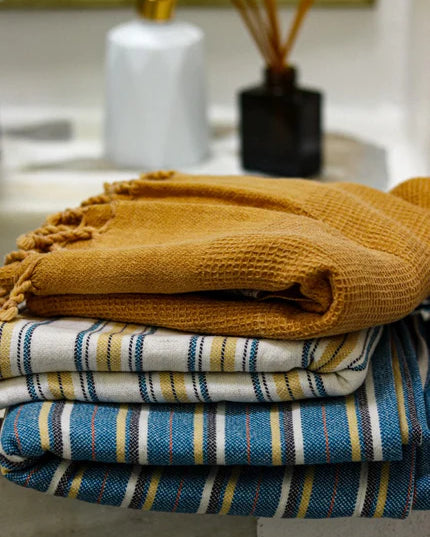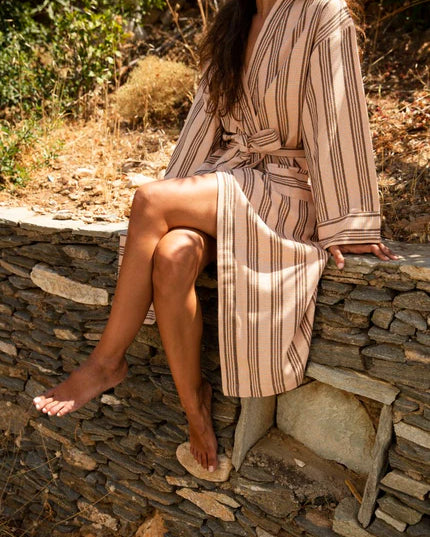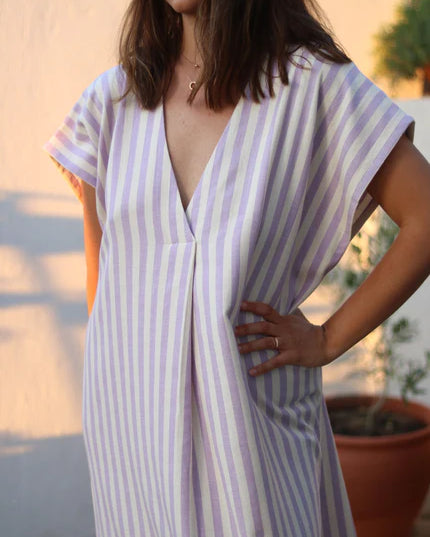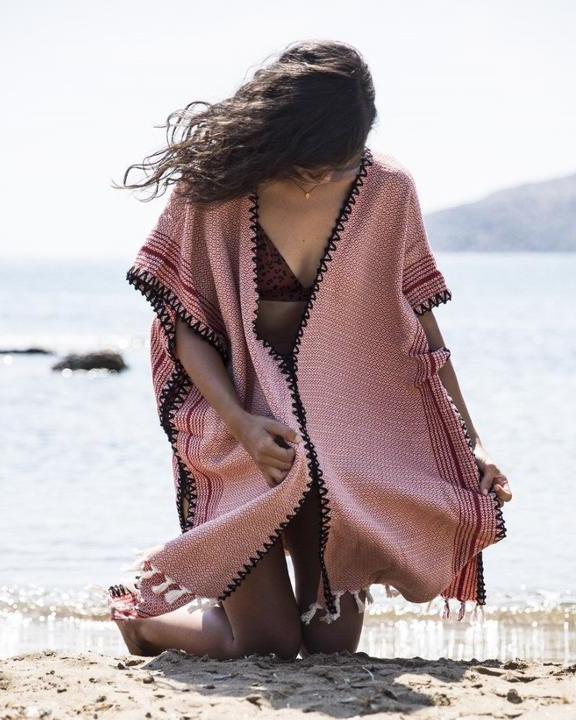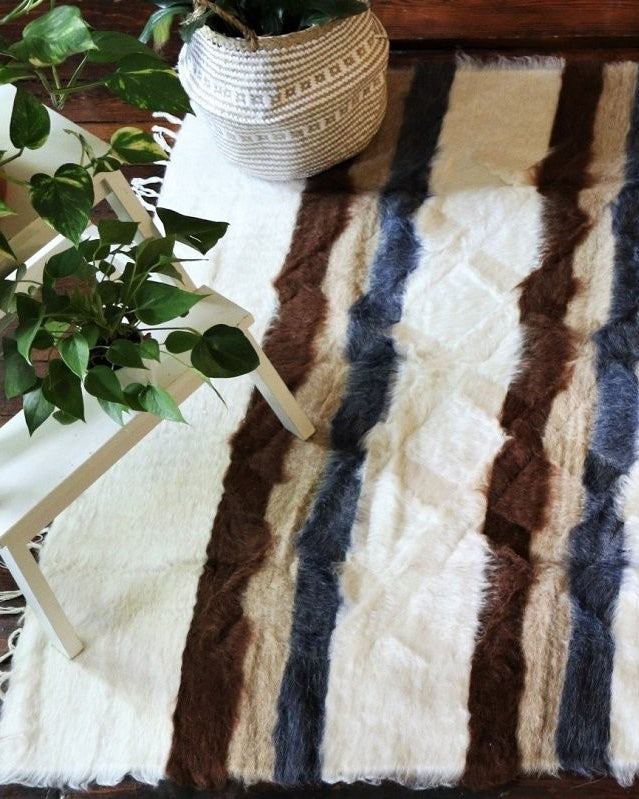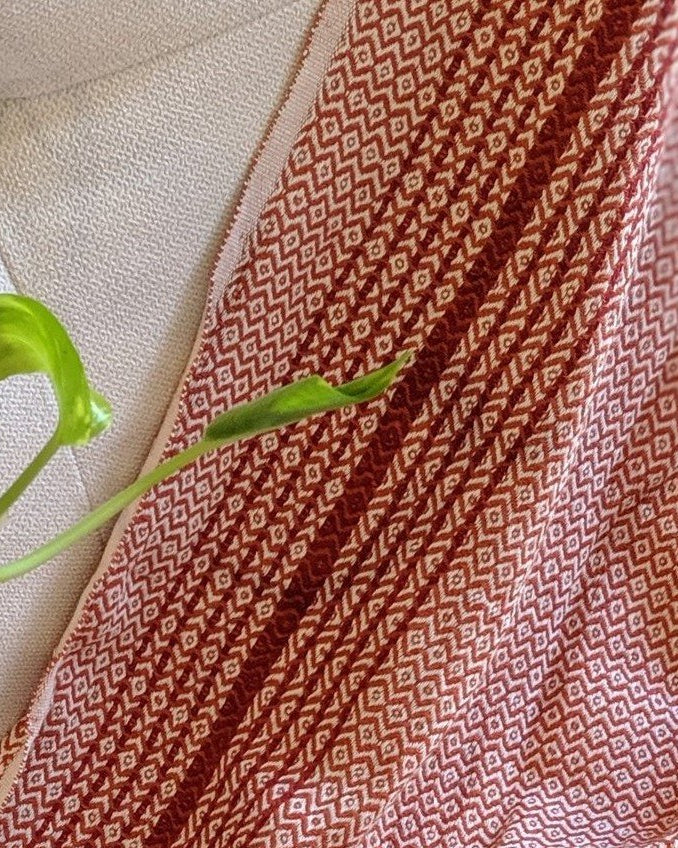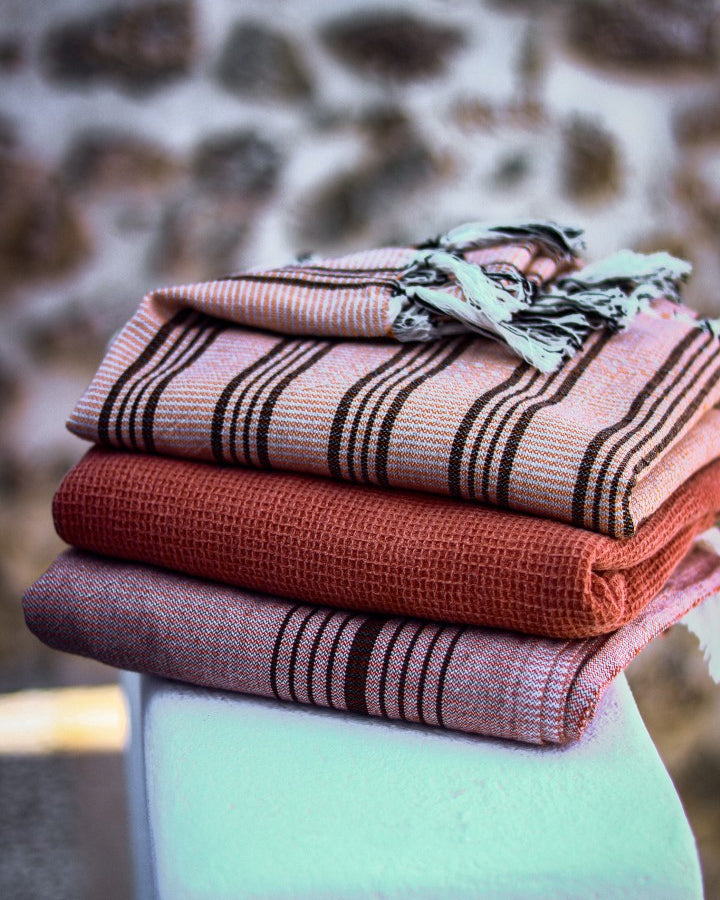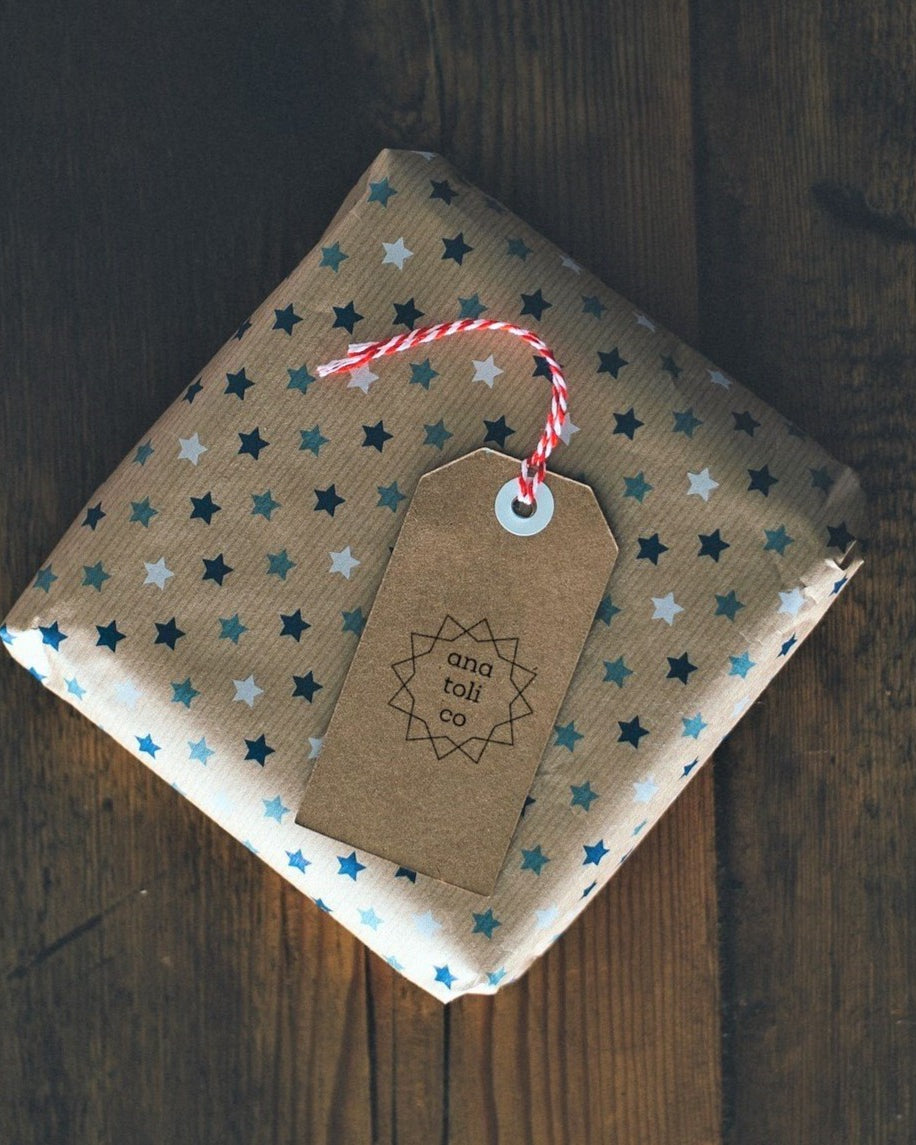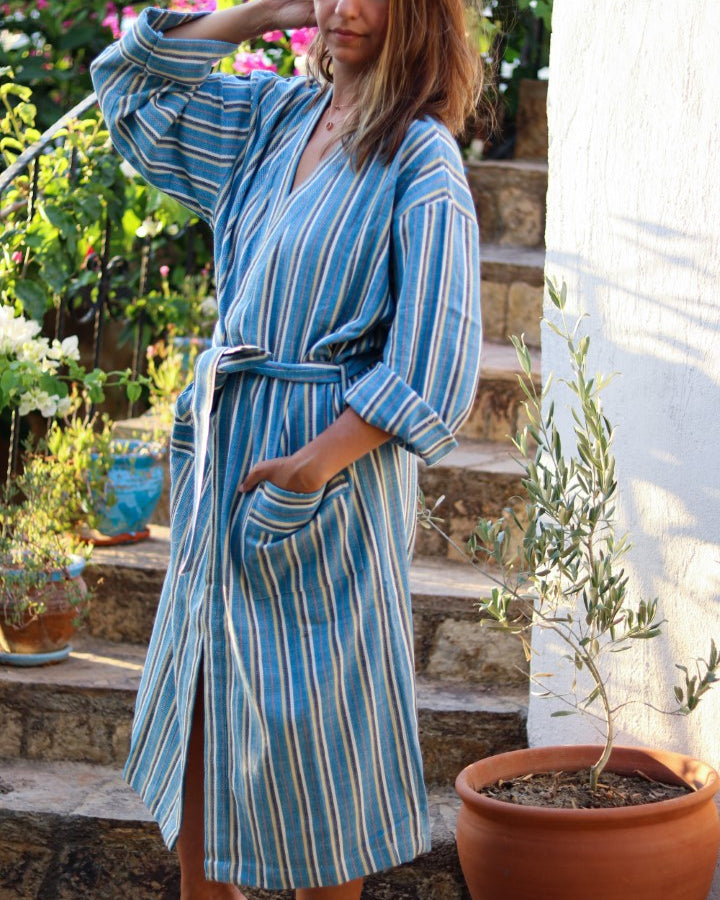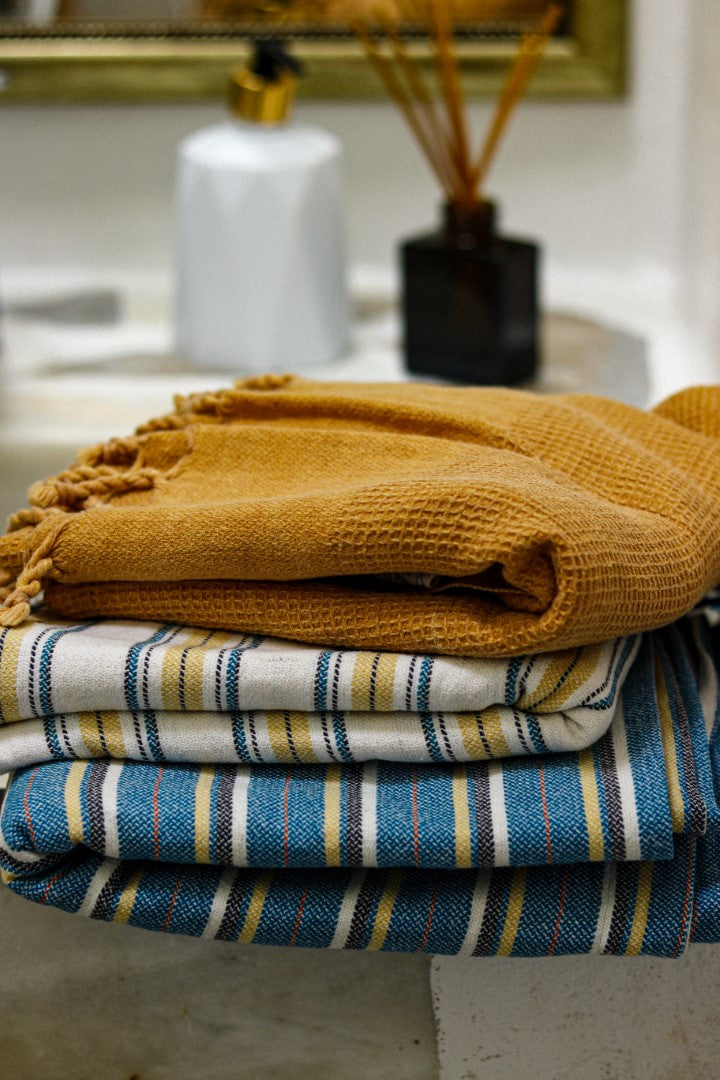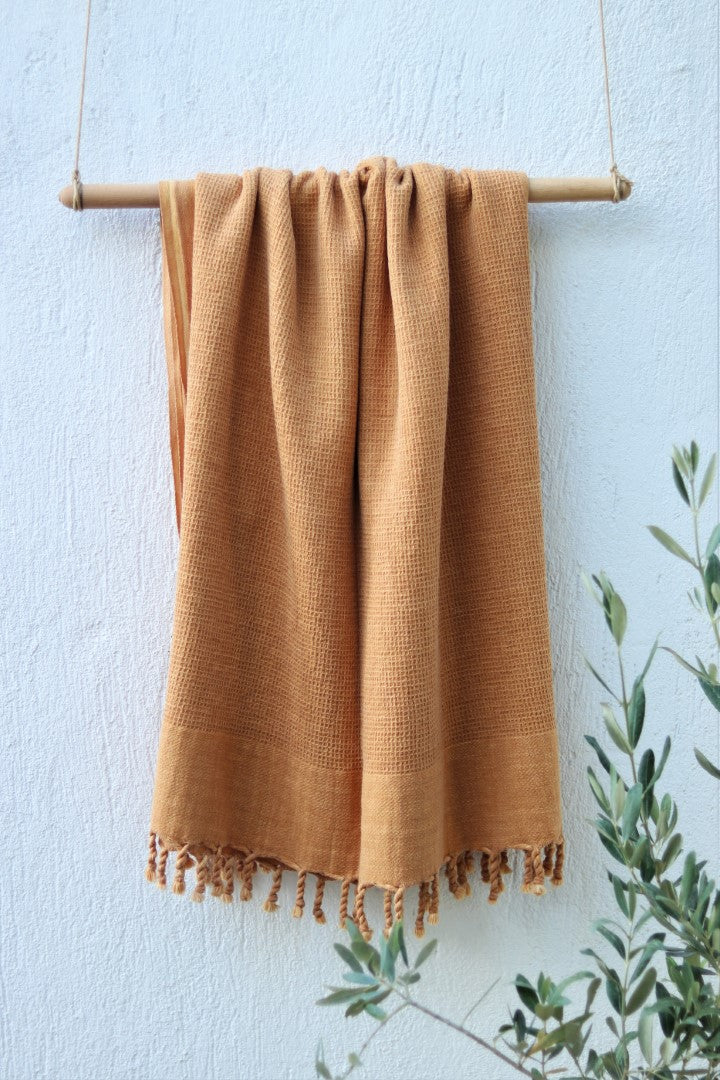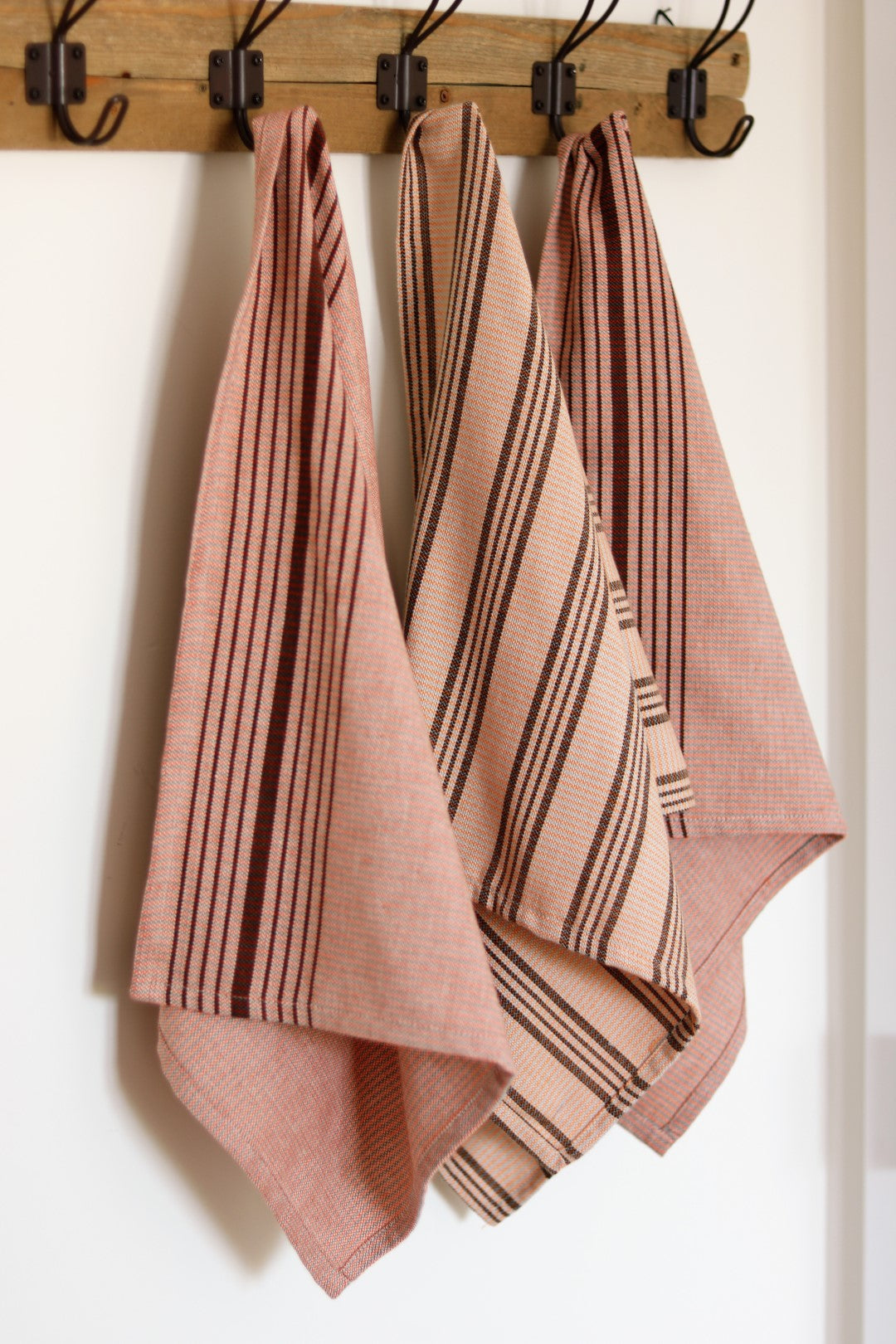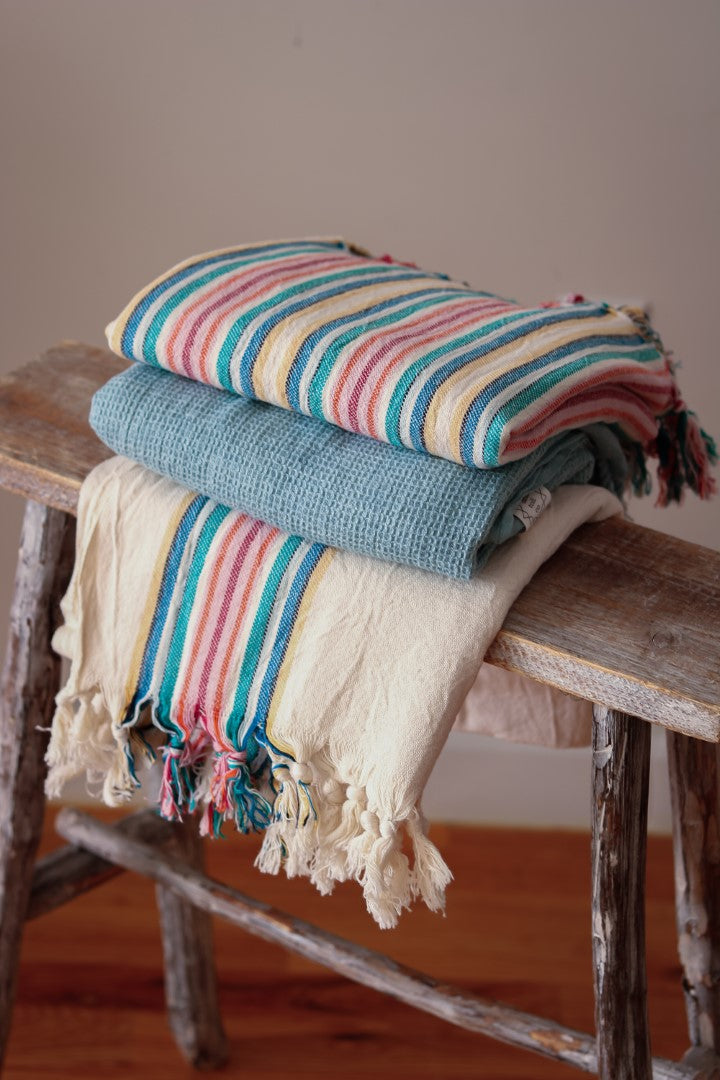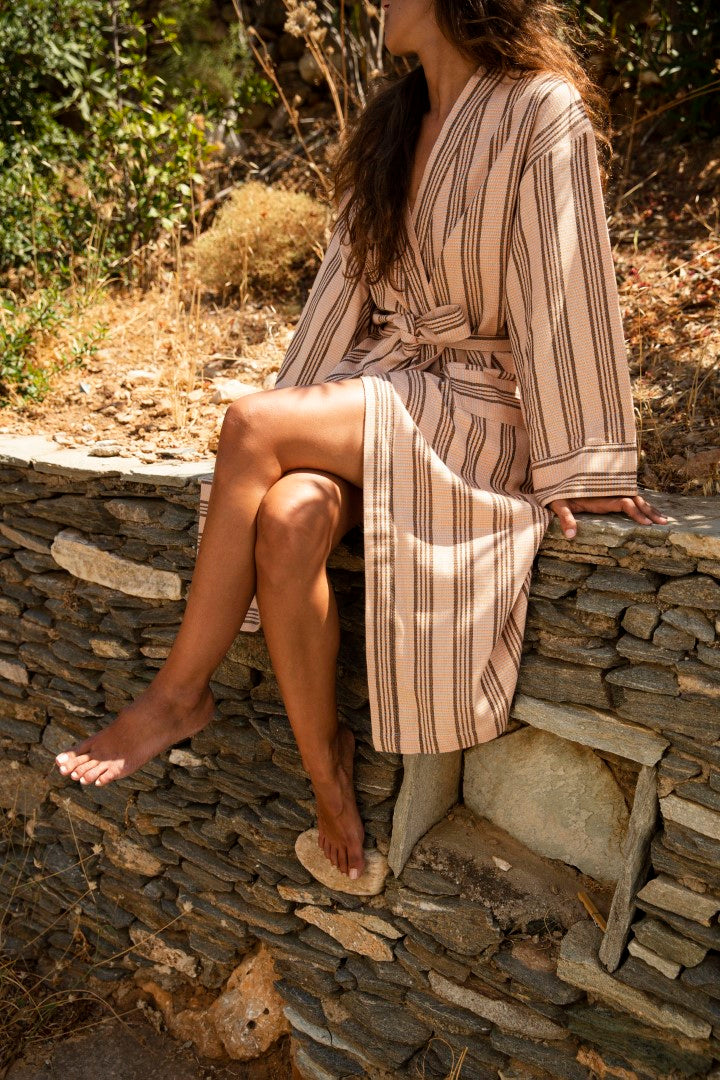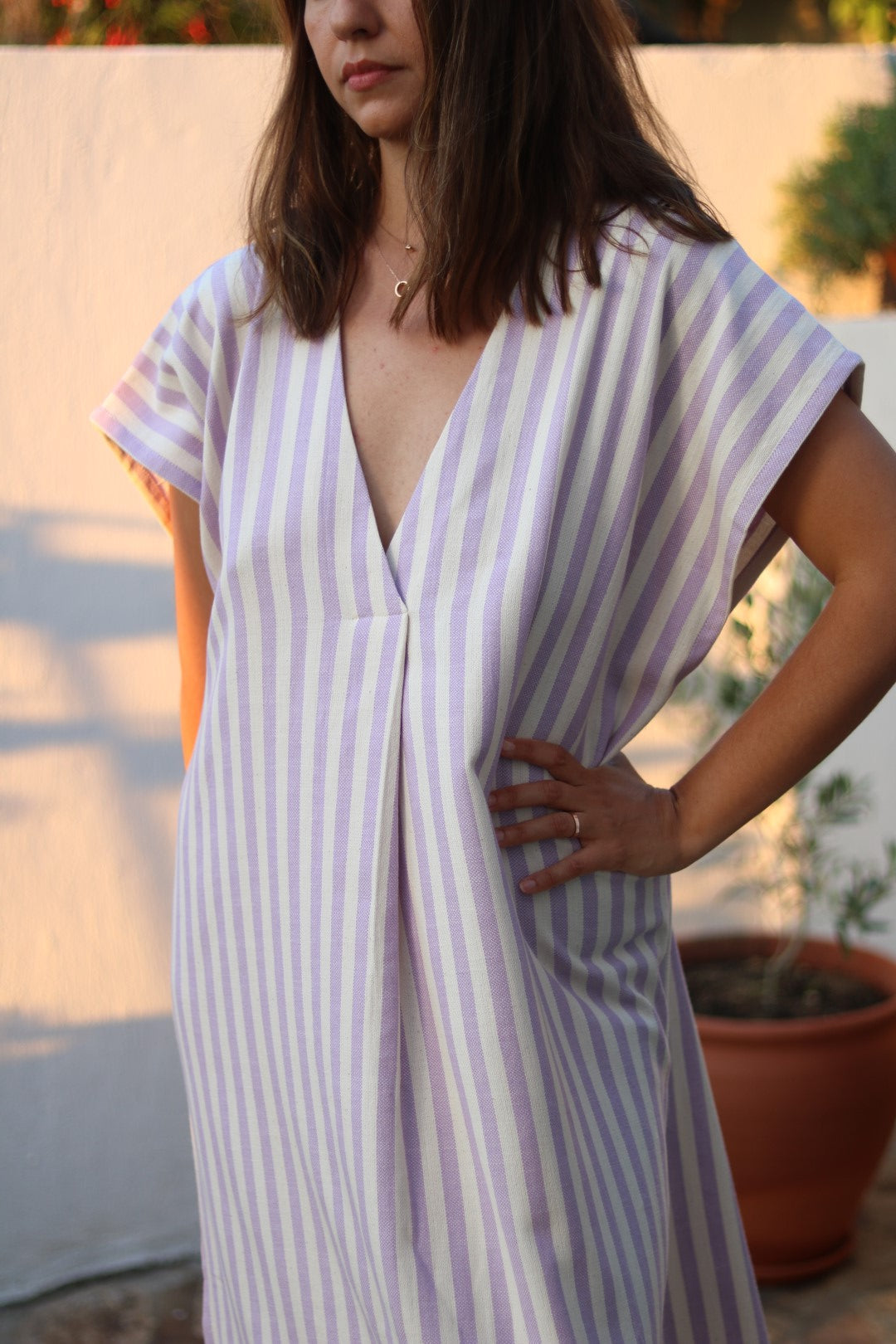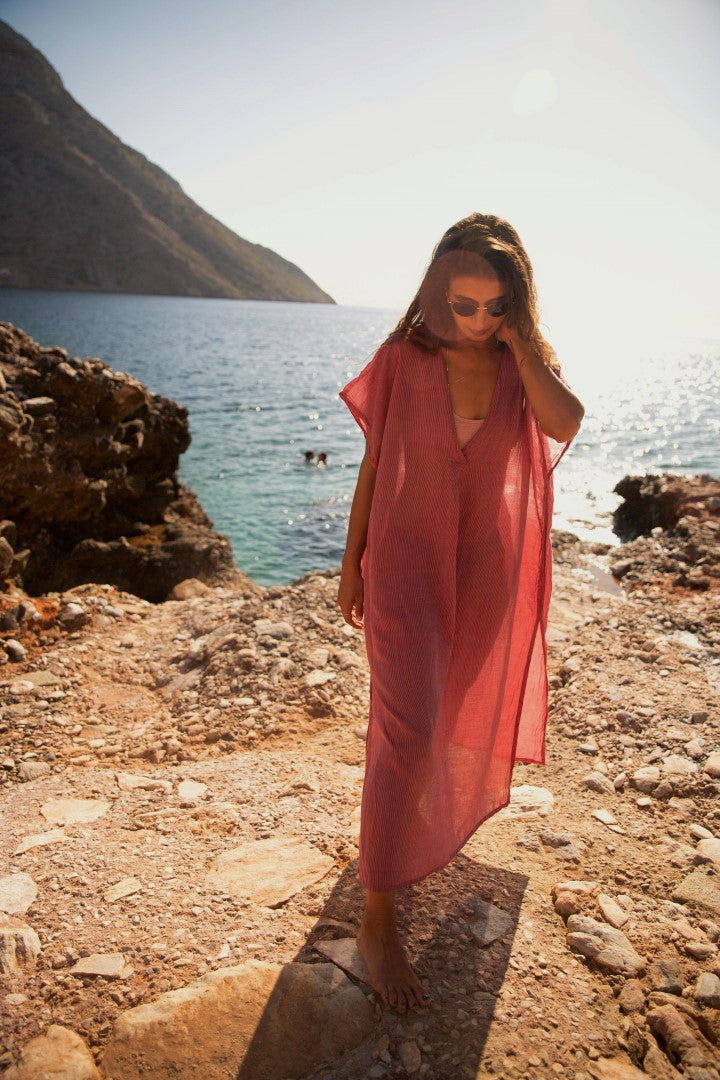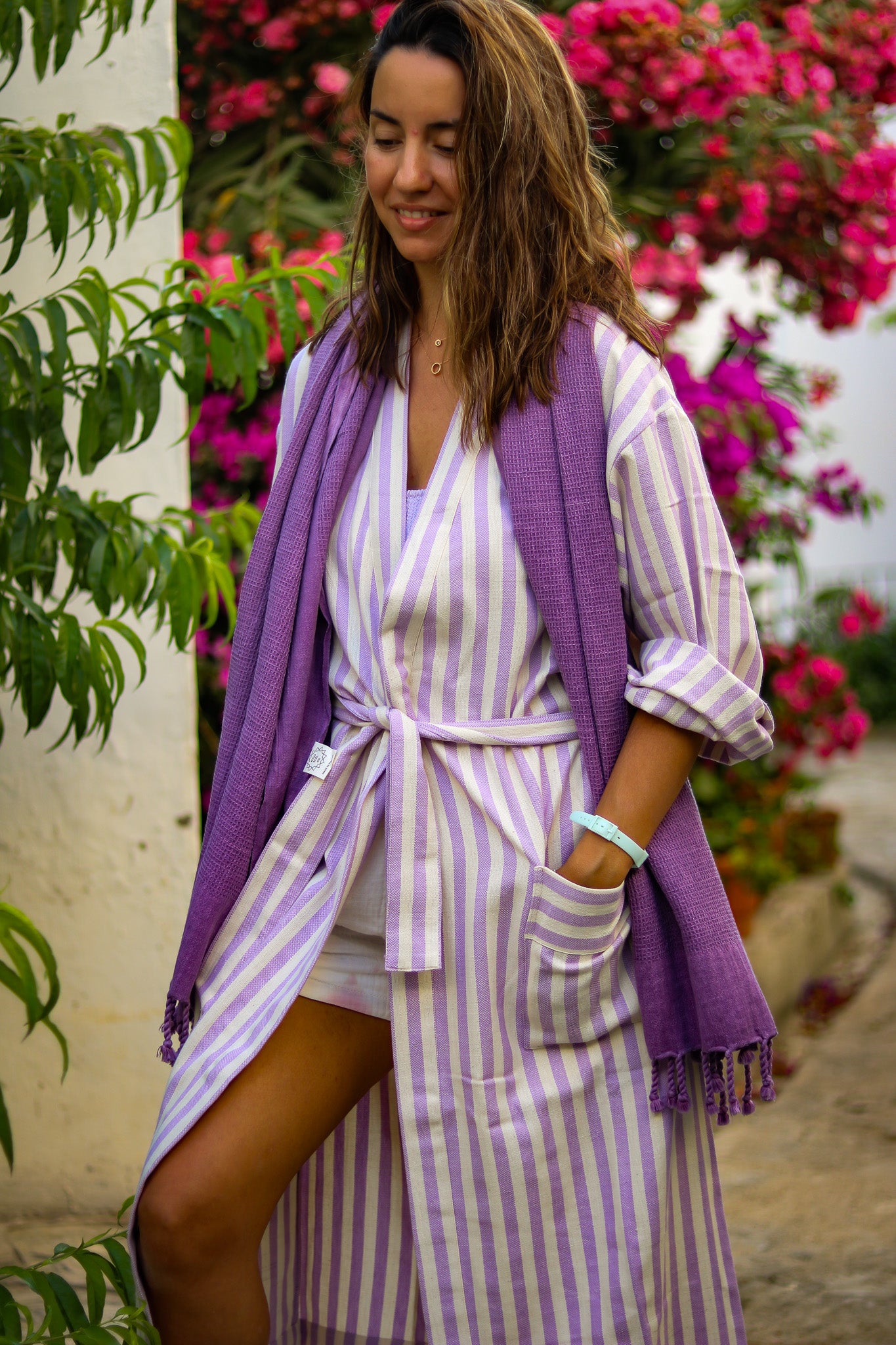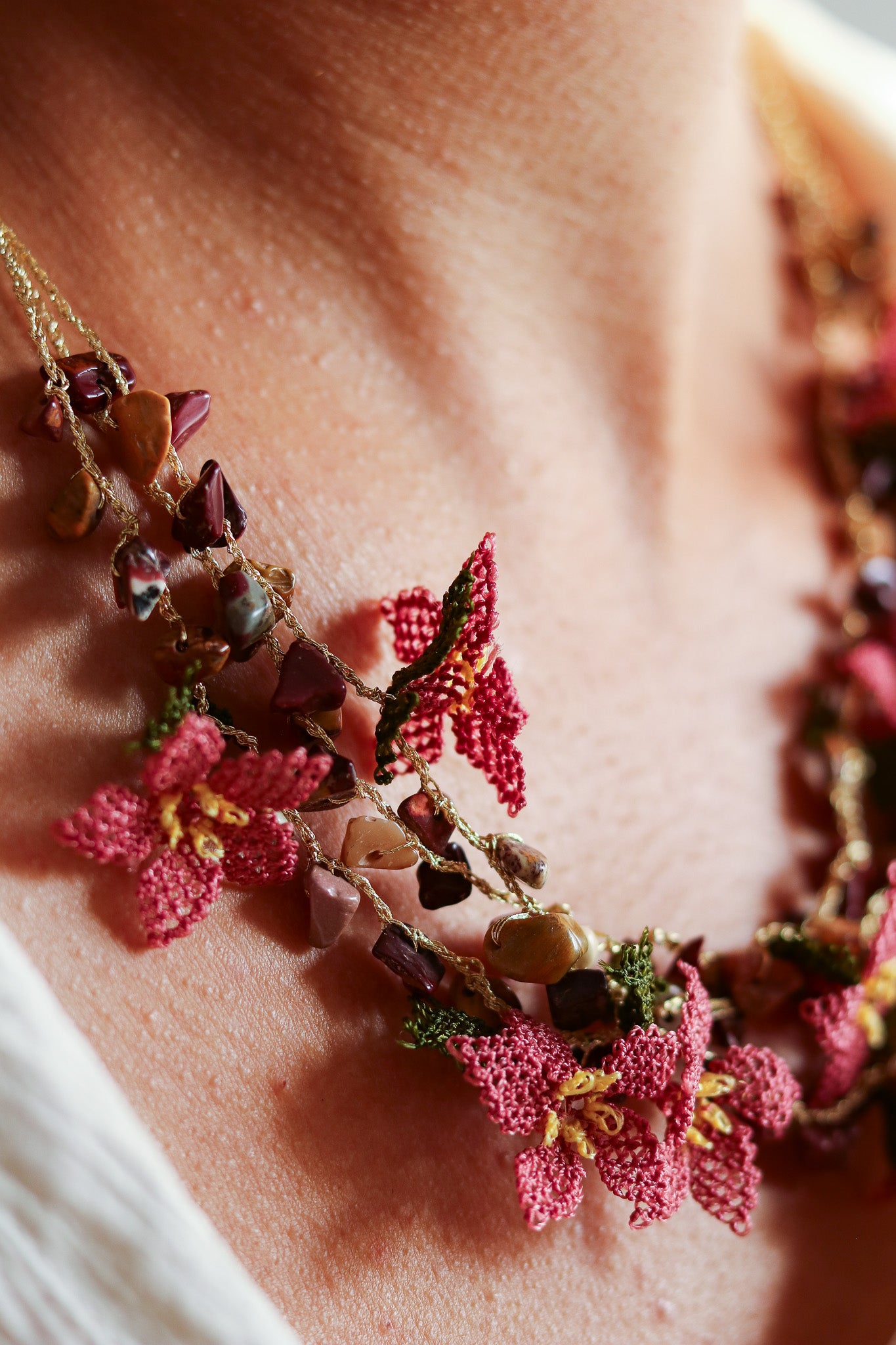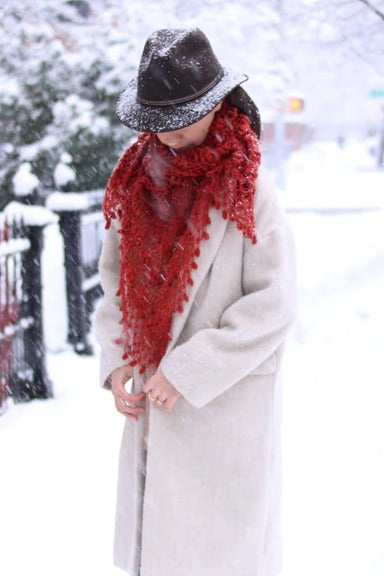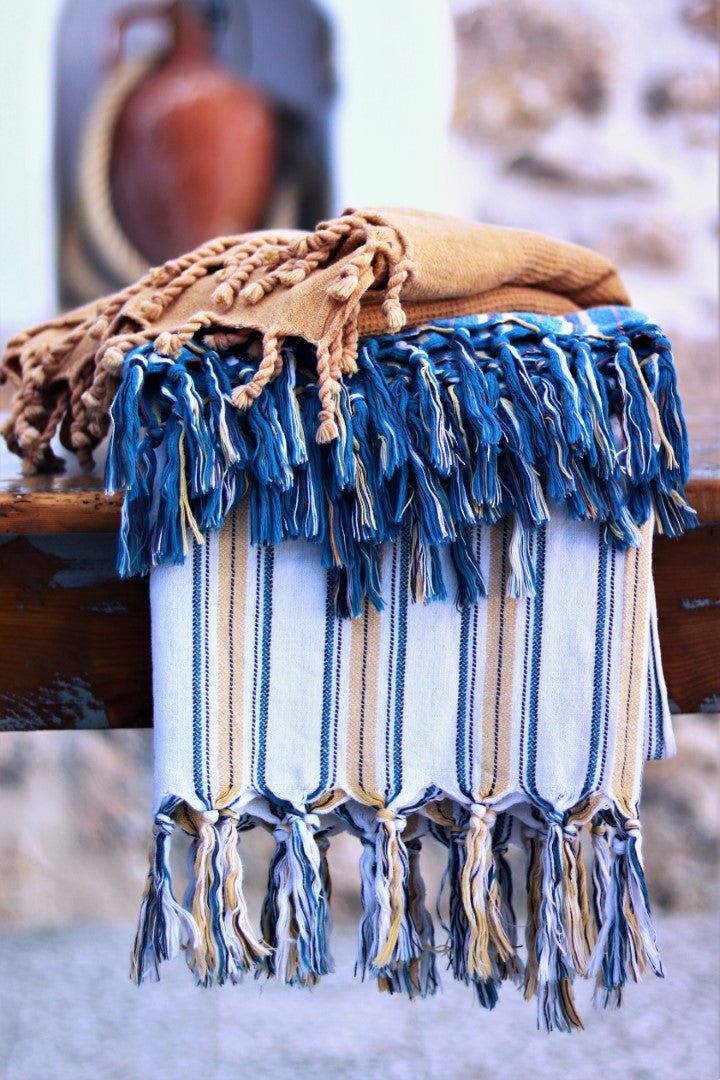All you need to know about Turkish towels
What are Turkish towels?

They are also known as Peshtemal towels in Turkey and Fouta towels in North Africa.
Where did they come from?

How to use Turkish towels
Well, first and foremost, they are great towels, so you should use them as towels: We use them right out of the shower and at the beach. They are very absorbent, lightweight and easy to carry, dry quickly and always smell fresh, making them perfect for everyday use. Apart from a great towel, many people use them as a shawl, a scarf, a throw or a blanket. Their compact size and quick drying time make them perfect for the bathroom, the beach, the spa, your yoga or Pilates class, home décor or a picnic.
What do you use Turkish towels for?

- in the bathroom, right out of the shower
- as your beach towel (the sand won't stick!)
- for travel
- in a traditional Turkish bath
- for the gym or yoga classes
- as a hair towel
- as a scarf
- as a sarong
- as a wrap
- as an airplane companion
- a picnic blanket or a tablecloth
How are Turkish towels different from a typical terry towel?
Turkish towels are flat-woven, lightweight and thin so they dry much quicker than a normal cotton terry towel. They are larger in size (typically 80 by 40 inches), but are very compact. Compared to a thick terrycloth towel, Turkish towels take up much less space.
What are Turkish towels made of?

Turkey is known for producing some of the highest quality cotton products in the world. Our towels, robes and scarves are hand-woven from 100% Turkish cotton or linen by small, family-run textile makers in Turkey.
According to Pottery Barn, Turkish cotton is similar to Egyptian cotton. Both have extra-long fibers that result in stronger, smoother cotton threads and minimal areas where fibers are joined. Egyptian cotton towels are known for their exceptional absorbency. However, the more absorbent it is, the wetter the towel can stay after use. Towels that are too absorbent may stay damp longer in humid climates. Turkish cotton towels are highly absorbent, but they’re also efficient when it comes to drying out.
How are Turkish towels made?
They are loomed. We prefer to work with artisans that have been looming either by hand or on 100+ year-old looms for generations.
Are Turkish towels eco-friendly?
Yes. Why? Turkish towels are so lightweight, they use less material, and production is much more energy-efficient than a typical terry cloth towel. They dry more quickly after use, so they don't take on a musty smell. As a result, they don't need laundering as often. When the time comes though, they take much less space in the washer and much less time in the dryer. For more details about the eco-friendliness of cotton and linen, check our blog posts.
Our towels in particular are of the highest quality and will last you forever. You certainly won't throw them away after a couple of years of use because not only do they wear out, but they get better the more you use them.
Where are Turkish towels made?

The real ones are made in Turkey, although there are factories in China and India that make similar towels. Our towels are made by two artisan families we work with in Turkey: one is in Izmir on Turkey's west coast, and the other is in Hatay, close to the Syrian border.
Can Turkish towels go in the washer and dryer?
Absolutely. We recommend gentle machine washing in warm or cold with similar colors. No bleach and try not to mix the wash with items that have zippers or hooks as they might get tangled in the fringe.
Line drying would be the best, but at home we use the lower heat setting on our tumble dryer. Too much heat can damage the integrity of cotton, making your towels hard. Try a lower setting, or alternate between hang drying and tumble drying.
How to prepare Turkish towels first time use?
Again, Turkish towels will get softer and more absorbent the more you use them and wash them. How to make Turkish towels more absorbent if you want to jump start the process? You can soak your new towel in cold water for a few hours or over night and hang dry it. This isn't a must but it will emulate washing and drying your towel many times. Natural cotton needs to be "broken in", which allows the fibers to bloom, be softer and reach maximum absorbency.
Should I use fabric softener?
No. Fabric softener creates a film that coats your towel's naturally absorbent cotton, which actually builds-up. Although it might feel soft and nice at first, this build-up of film overtime makes your towel less absorbent. The good thing is that a Turkish towel will get softer and more absorbent the more you use it, always as long as you don't use fabric softener in the wash.
How to make a Turkish towel softer and more absorbent?
Summarizing the points above, all you need to do is keep using and washing your towel and to not use fabric softener.
What to do with pulled threads or unraveled fringe?
If your towel has snagged and pulled out threads, simply cut the thread off. This will not damage your towel due to the way it has been loomed. The fringes are hand knotted and can unravel with use. These can be re-tied. Make two bunches and twist each section clockwise till fully twisted. Take each bunch and wrap around each other in an anti-clockwise direction till fully twisted around each other. Tie a knot at the end of the fringe.
